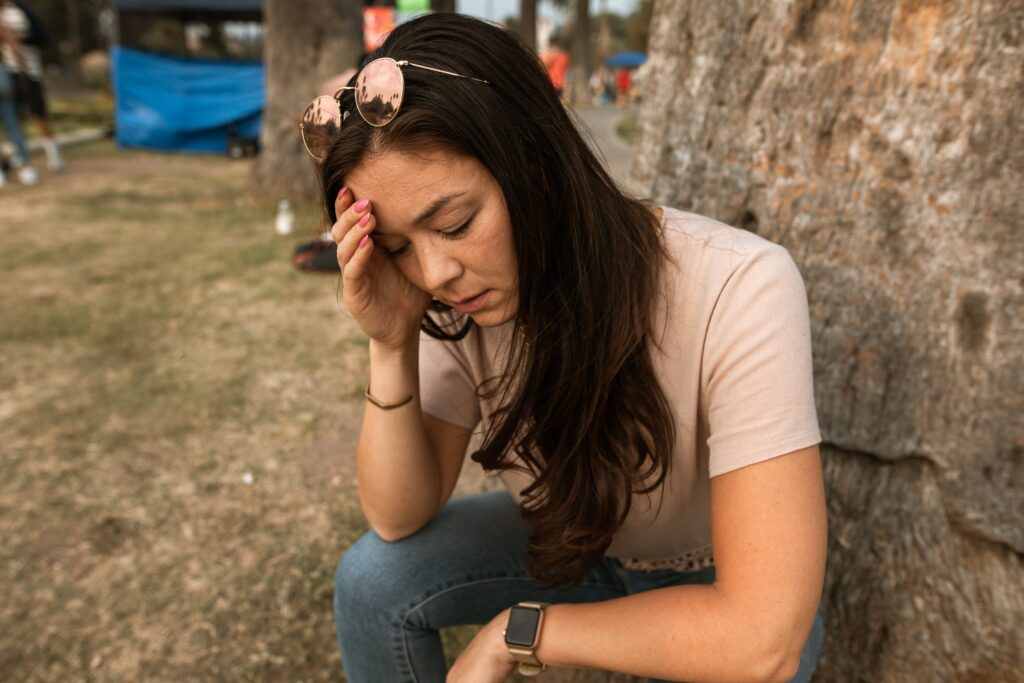Seizures due to alcohol withdrawal may occur in some people who are detoxing. Chemical changes that occur in the brain during alcohol detox can trigger seizures from alcohol withdrawal, especially when someone progresses into more severe stages of withdrawal. Seizures from alcohol withdrawal can be dangerous and potentially life-threatening. Read on to learn more about alcohol withdrawal and seizures.
Can Alcohol Withdrawal Cause Seizures?
Alcohol consumption itself rarely leads to seizures because it interacts with certain brain receptors known as GABA receptors. These receptors are involved in increasing the seizure threshold, which makes it more difficult for seizures to occur spontaneously.
Although alcohol use tends to elevate the seizure threshold, so decreasing the probability of seizures, the risk of seizures increases during alcohol withdrawal. This heightened risk is due to chemical alterations in the brain that result in a lowered seizure threshold. As withdrawal symptoms intensify, the seizure threshold decreases, making seizures more probable.
Alcohol withdrawal seizures can commence during the first 72 hours of abstinence. Withdrawal occurs when your body becomes accustomed to the continuous presence of substances like drugs or alcohol. Abrupt cessation of these substances leads your body to experience withdrawal symptoms as it adapts to their absence. For those who are dependent on alcohol, engaging with a supervised detox program under medical supervision can mitigate the risks associated with alcohol withdrawal seizures effectively.

Alcohol Withdrawal Seizure Symptoms
Alcohol withdrawal can lead to severe complications, one of which is the risk of experiencing tonic-clonic seizures. These seizures are a form of generalized seizure that affects the entire brain and are characterized by two phases – the tonic phase and the clonic phase. Recognizing the symptoms of withdrawal from alcohol seizures enables timely intervention and management.
The tonic phase is the initial part of the seizure, typically lasting from a few seconds to a minute. During this phase, the following symptoms are observed:
- Muscle stiffness: The individual’s muscles suddenly become rigid.
- Loss of consciousness: There is an abrupt loss of consciousness, which can result in falls or injuries.
- Breathing difficulty: Breathing may become labored or stop temporarily, leading to cyanosis (bluish coloration of the skin due to lack of oxygen).
Following the tonic phase, the clonic phase begins, characterized by:
- Rhythmic jerking: The arms and legs begin to jerk rapidly and rhythmically.
- Disorientation and confusion: After the jerking stops, the person might remain unconscious for a while and may wake up feeling confused or disoriented.
- Incontinence: There may be a loss of bladder or bowel control during this phase.
Additional symptoms may include:
- Fatigue: After the seizure, people often experience extreme fatigue and may need to rest for several hours.
- Headache and muscle soreness: A severe headache and muscle soreness are common after the seizure due to the intense muscle contractions.
- Emotional distress: Feelings of embarrassment, confusion, fear, or anxiety are also common post-seizure.
Tonic-clonic seizures during alcohol withdrawal are more likely to occur in those with a history of heavy and prolonged alcohol use, especially if they have experienced withdrawal seizures in the past. The risk is heightened in the first 48 hours after the last drink and can be precipitated by the rapid decrease in blood alcohol levels.
Immediate medical attention is essential for managing tonic-clonic seizures during alcohol withdrawal. Treatment often involves the administration of benzodiazepines to manage withdrawal symptoms and prevent further seizures. Thiamine and other supportive measures may also be necessary to prevent complications such as Wernicke’s encephalopathy. Preventing seizures involves the gradual reduction of alcohol intake under medical supervision, proper hydration, and nutritional support.
Alcohol Withdrawal Seizures Timeline
The timeline of alcohol withdrawal seizures typically follows a predictable pattern after the last alcohol consumption:
6 to 12 hours
Individuals may begin to experience mild withdrawal symptoms, including anxiety, tremors, nausea, insomnia, and gastrointestinal disturbances. While seizures are not common in this initial phase, those with a significant history of heavy drinking may be at risk.
12 to 24 hours
The risk of experiencing alcohol withdrawal seizures is highest during the first 24 hours and can extend up to 48 hours. These seizures are typically generalized tonic-clonic seizures.
24-48 hours
The risk for seizures remains elevated. During this period, individuals may also experience hallucinations (visual, auditory, or tactile) that are not associated with DTs (delirium tremens).
48-72 hours
While not everyone will experience DTs, those who do usually develop symptoms 48 to 72 hours after the last drink. Symptoms of DTs include severe disorientation, agitation, fever, and tachycardia. DTs carry a risk of seizures, separate from the earlier withdrawal seizures.
Beyond 72 hours
Some people may experience extended withdrawal, described clinically as PAWS (post-acute withdrawal syndrome), which can last for weeks or months. While seizures are less common during this phase, the person may continue to experience fluctuating levels of emotional and psychological distress.
Several factors can influence the severity and timing of withdrawal symptoms, including history of alcohol use, previous withdrawal episodes and co-occurring mental health conditions.
Why Does Alcohol Withdrawal Cause Seizures?
Recent advances have significantly enhanced our understanding of alcohol’s short-term and long-term impact on the central nervous system, offering fresh perspectives on how it relates to disease or injury.
Alcohol consumption blocks the activity of NMDA neuroreceptors (which are critical for processing and transferring information from neurotransmitters). These receptors are crucial for various brain functions, including:
- Breathing
- Learning
- Forming memories
- Movement
Ceasing alcohol intake abruptly can lead to the brain becoming overly sensitive and easily agitated, a state known as brain hyperexcitability, because the receptors previously inhibited by alcohol are now free.
Symptoms of brain hyperexcitability include:
- Anxiety
- Irritability
- Agitation
- Tremors
In more severe cases, hyperexcitability can lead to:
- Alcohol withdrawal seizures
- Delirium tremens (DTs)
Studies suggest that the symptoms of alcohol withdrawal become increasingly severe with prolonged alcohol abuse. The cycle of detoxification and relapse heightens the risk of experiencing alcohol withdrawal seizures, a phenomenon known as the kindling effect. According to this theory, each episode of withdrawal irritates the brain, and accumulating several such episodes reduces the threshold for seizures. Here’s how you can get alcohol withdrawal seizure treatment.

Get Treatment for Alcohol Withdrawal at Gratitude Lodge
At Gratitude Lodge, we offer a supervised medical detox program that enables you to begin your recovery as safely and comfortably as possible. Access medications and continuous care as you tackle alcohol dependence and prepare yourself for ongoing treatment at one of our rehabs in Long Beach or Newport Beach, CA.
We appreciate that all alcohol use disorders are unique and that everyone has different requirements or co-occurring mental health disorders. We account for this by ensuring that everyone can access targeted treatments. These may include:
- MAT (medication-assisted treatment)
- Talk therapies
- Group therapy
- One-to-one counseling
- Family therapy
- Holistic treatments
- Aftercare planning
Call 800.994.2184 for personalized assistance and effective alcohol addiction treatment.




























